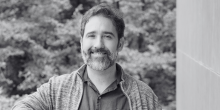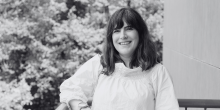The "longevity revolution" is a reality that is transforming the demographic structure of our society and also the reality of Gipuzkoan society.
The demographic reality of Gipuzkoa varies according to the region and the municipality. In Gipuzkoa, 21.30% of the total population is over 65. 3.4% of the population is over 85.
The desire of the majority of older people to grow old at home and in their environment, even if they are in situations of dependency, has been strong for many years. This type of data is the basis of current approaches to care in which the main focus is on staying at home for the elderly, allocating the resources necessary for the person to continue in their home as long as possible and, if this is not possible, looking for other accommodation alternatives that are as similar as possible to a home.
The models of coexistence are strengthened through a solid and progressive increase of people living alone, who are increasingly older. Significant data on the transformation of the configuration of families.
Gender is also a factor which influences two important dimensions. On the one hand, the number of older people due to their longer life expectancy than in the case of men. And the role of women in the field of care. Both in the role of the family member who assumes the care and in the role of the care professional.
Life expectancy is increasing, as are the years of life free of disability, and the stage when the need for help is very intense is also increasing. This need for help is prolonged over increasingly long periods of time...
In response to all this contrasting reality, the Provincial Council of Gipuzkoa offers the necessary coverage of benefits and services aimed at elderly people in a situation of dependency. However, we see the need to reflect on and adapt this network of coverage to the new demands generated by dependency, people's preferences and the current socio-demographic structure.
Therefore, we add the preference to continue living at home and the increase in life expectancy in both disability-free and dependent years. This sum of circumstances generates an important issue in the scenario of care in the homes of elderly people in a situation of dependency.
It is an increasingly complex reality that people in a situation of very severe dependency can continue in their homes with the provision of current services. In many cases it is decided to opt for a residential placement. In many cases, this decision is taken after exhausting all the existing channels and generates difficulties and significant wear and tear for the people affected. On many occasions the decision that was initially intended to be avoided, which was never expected to be taken.
Home care for dependent people deserves a commitment to improve and adapt to what the new reality is teaching us.
This data is clear enough to think of initiatives in the field of social innovation that provide a response aimed at responding to situations that are foreseen as future needs and which are already present in the field of care for the elderly who need help. In this case, we need to innovate in the care we provide at home.
The Provincial Council of Gipuzkoa is committed to the field of home care throughout the historical territory. The municipalities of Elgoibar, Errenteria and Pasaia have joined this commitment and have provided the means to investigate and intervene in the innovation of care. All of this is supported by the municipalities' health department and outpatient clinics. The project will be directed and coordinated by Matia Instituto.
ETXEAN BIZI was born out of this commitment and the reflection of all the parties involved, a project aimed at reformulating the model of support and care for people in a situation of fragility and/or dependence who wish to continue living in their environment. It is a project inspired by the Etxean Ondo experience, promoted by the Basque Government and the Matia Institute. It is an experience that aims to review the model of home care in Gipuzkoa, through the development of a comprehensive home care model. Comprehensive care that will be conceptually based on the people-centred care model. This care proposal aims to integrate and incorporate all the participating parties, all the agents involved in care: families, social services, ODS, primary and specialised health care, the important and invisible sector of domestic and care workers, personal assistants, volunteers and community network, proximity services, the Lagunkoia or friendliness movement... a long etc. Which will be incorporated as long as it contributes value to improving the well-being of people in their homes and their environment. This incorporation and integration will be coordinated by the Case Manager. A professional that has a very close knowledge of the person and what is experienced in his/her home, accompanying and empowering the dependent person, making him/her the protagonist of how he/she wants to be accompanied and cared for.
This project aims to achieve improvements in the quality of life and well-being of the person. It is based on respect for the dignity and fulfilment of the rights of the person, their interests and preferences. To this end, the person is "the protagonist", the main participant of the person. Autonomy in its broadest concept of the person is prioritised, pointing out, autonomy in making decisions about one's own life.
ETXEAN BIZI, LIVING AT HOME, aims to be the model of comprehensive care focused on people with a future in the territory of Gipuzkoa. A care proposal that responds to people's preference to continue living at home, even in a situation of severe dependency. A care proposal that values all the parties involved in care, from the close family members committed to care, to care professionals and domestic service who sometimes go unnoticed. A way of shaping integrated care through coordination of both social and health care, and of local services in different areas, public, private and mixed.
ETXEAN BIZI aims to be another way of living at home. Living as one decides, with the necessary accompaniment to decide how to live and design that life project. A formula that accompanies the fact that what is done at home is LIVING!
Objectives
The aim of the project is to identify a sustainable model of integrated socio-health care focused on people living in their homes, from the coordination of those services and supports necessary to obtain the best quality of life for these people and their family environment.
The achievement of this general objective requires significant progress in essential aspects such as
The fulfilment of the wishes and preferences of people who need help with their way of life at home in conditions of dignity for as long as possible.
The promotion of autonomy and quality of life in old age, within the framework of the development of a model of comprehensive and people-centred care in which flexibility and agile adaptation of responses to needs are guaranteed.
The integration of efforts so that these people remain incorporated into social and community life, as a source of fulfilment and well-being for them and their immediate environment.
To advance in the identification of innovative methodologies both in the generation of knowledge and in the intervention, with special attention to the identification of competences and skills of the professional figure of the case manager.
In short, the Etxean Bizi project establishes as a central hypothesis that the coordination of programmes and services from a model of close provision, can adequately satisfy the needs and preferences of people in a situation of dependency and their carers in the home environment.
It is also expected that this model will be cost effective, generate employment and improve the quality of life of the people who need help, their families and the territories they live in, promoting a movement of friendship between the citizens and their dependent population. In short, the key to the project lies in the coordination and optimisation of resources from a conceptual framework focused on people.
You can download a brochure that briefly describes this project here.




